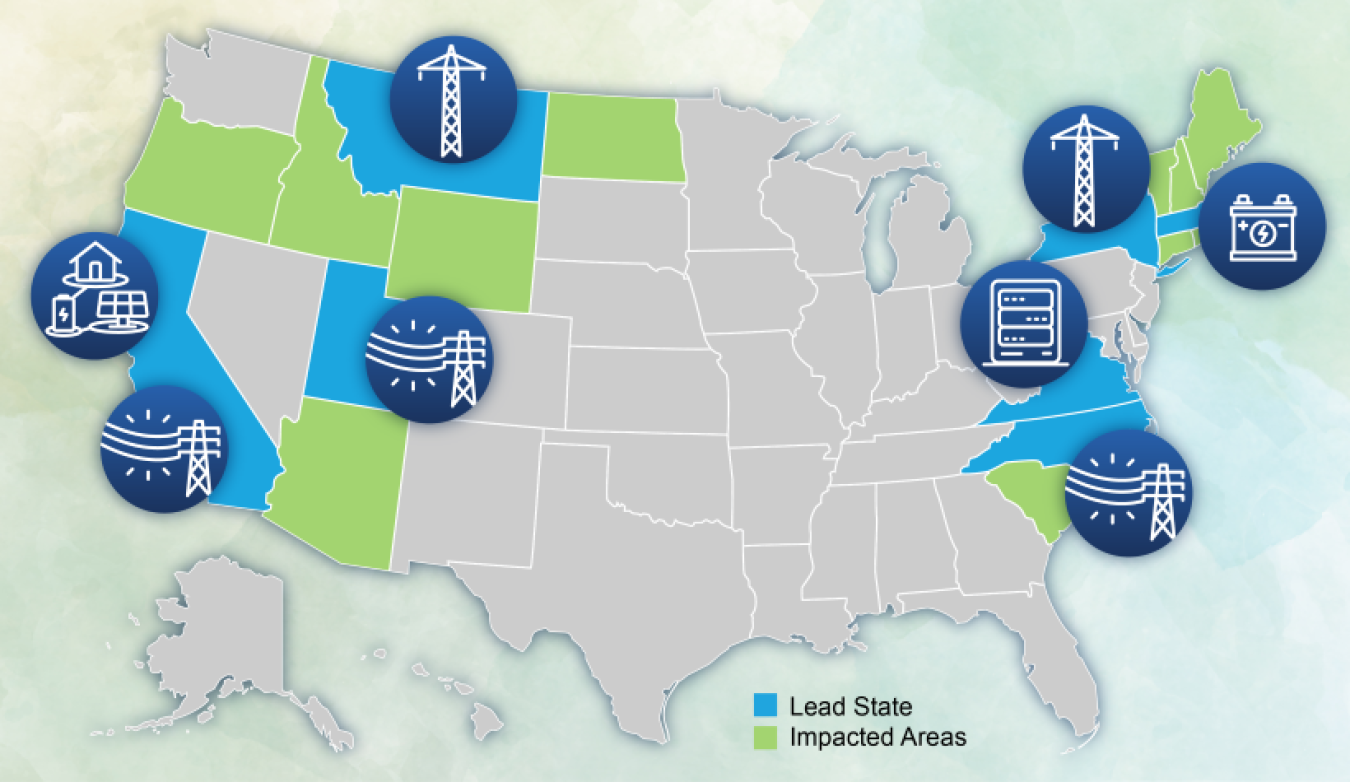Earlier today, November 15, 2023, President Biden released the Fifth National Climate Assessment (“NCA5”). The NCA5 assesses changes in the climate, its national and regional impacts, and options for reducing present and future risk. NCA5 showed that every region of the country is experiencing the impacts of climate change, but that ambitious climate action is underway in every region as well.
The report shows that climate change related extreme weather events still pose a rapidly intensifying threat – one that, according to the White House, costs the U.S. at least $150 billion each year, and that disproportionately affects underserved and overburdened communities.
In coordination with the release of NCA5, President Biden announced more than $6 Billion in investments to make communities more resilient to the impacts of climate change, including by strengthening America’s aging electric grid infrastructure, reducing flood risk to communities, supporting conservation efforts, and advancing environmental justice.
I. BOLSTERING AMERICA’S ELECTRIC GRID. The Department of Energy (DOE) announced over $3.9 billion of funding through the Bipartisan Infrastructure Law, to strengthen and modernize America’s electric grid in the face of more frequent and intense climate impacts. This funding opportunity, the second under the Grid Resilience and Innovation Partnerships program, focuses on projects that will modernize the electric grid to reduce impacts from extreme weather and natural disasters, increase capacity and unlock renewable energy resources, mitigate faults that lead to wildfires or other system disturbances, and deploy advanced technologies such as distributed energy resources and battery systems to provide essential grid services.
II. ADVANCING ENVIRONMENTAL JUSTICE. The Environmental Protection Agency (EPA) will soon make $2 billion of funding available through its Environmental and Climate Justice Community Change Grants program to support community-driven projects that deploy clean energy, strengthen climate resilience, and build community capacity to respond to environmental and climate justice challenges. This program, funded by the Inflation Reduction Act, will invest in multi-year partnerships between community-based organizations, local governments, institutes of higher education, and federally- recognized Tribes. EPA also will provide $200 million in technical assistance and capacity building support for communities and their partners as they work to access these critical federal resources.
III.REDUCING FLOOD RISK TO Federal Emergency Management Agency (FEMA) announced $300 million in a second round of funding through the Swift Current Initiative, funded by the Bipartisan Infrastructure Law, to help communities that have been impacted by catastrophic flooding during the 2022-2023 flood season become more resilient to future flood events. The Swift Current Initiative is focused on making mitigation assistance rapidly available for those who have suffered the effects of flooding disasters.
IV. BOOSTING CLIMATE RESILIENCE. The Department of the Interior (DOI) will announce $100 million in funding from the Bipartisan Infrastructure Law for water infrastructure upgrades that advance drought resilience in the West. This includes $50 million in project awards to improve the reliability of water resources and support ecosystem health in Western states, along with an additional $50 million funding opportunity for water conservation projects and hydropower upgrades. DOI is also announcing a newly established Kapapahuliau Climate Resilience Program and $20 million in initial funding available through the Inflation Reduction Act to enhance the ability of the Native Hawaiian Community to navigate the effects of climate change in ways that maintain the integrity and identity of the Native Hawaiian people while also maintaining and enhancing their capacity for coping, adaptation and transformation.
-
- The Department of Defense is launching a new Climate Resilience Portal at www.climate.mil. The creation of Climate.mil responds to requests from service members for a one-stop focal point for accessing authoritative and actionable climate change information. Phase 1 of Climate.mil will consist of key climate tools, reference documents and resources, and climate terms and definitions, while Phase 2 will be for internal DOD users and provide more detailed information and guidance to consider climate change factors and impacts in all relevant and applicable decisions.
- In addition, the White House is publishing a synthesis of insights from the 13 roundtable discussions on climate resilience that the Administration hosted earlier this year as part of the White House Summit on Building Climate Resilient Communities.
This resource will help inform federal and non-federal actions, investments, and decisions to help build climate resilient communities from the local level on up.
V. INVESTING IN CONSERVATION. The Department of the Interior will announce $166 million from the Inflation Reduction Act to meet critical ecosystem resilience, restoration and environmental planning needs for the National Park Service over the next 9 years. These investments build on an initial $44 million allocated earlier this year for work in fiscal year 2023, and advance the America the Beautiful Initiative, the Administration’s goal to restore and conserve 30% of lands and waters by 2030. The Biden-Harris Administration will join the National Fish and Wildlife Foundation and public- and private-sector partners in announcing over $140 million in grants through the America the Beautiful Challenge. The 74 new grants will support landscape-scale conservation projects across 46 states, three U.S. Territories, and 21 Tribal Nations.
Green Spouts: While the picture that is painted by the NCA5 is far from rosey, GHG emissions continue to fall despite GDP and population gains in the US. The report details the Administrations Investing in America’s actions to date with over $614 Billion to build manufacturing; over $392 Billion to upgrading the public infrastructure; and $8.8 Billion in home energy rebates to incent efficiency in the home. The NCA5 detailed continued increases in the number and severity of climate impacts with extreme events costing over $150 Billion each year. These sums are mind boggling but represent a massive opportunity to invest in our country’s infrastructure in a meaningful and cleaner way than in the past. Out of the new $6 Billion of funding announced today, approximately $3.9 Billion with be directed to strengthening and modernizing the electric grid; $2 Billion will fund Environmental and Climate Justice community grants and technical assistance; over $300 Million will be directed in second round funding through the Swift Current Initiative to focus on catastrophic flooding; another $100 Million to reduce drought impacts in the West together with over $20 Million to Native Hawaiian Community resilience programming. Again, a massive amount of money being directed to climate resiliency and community resiliency. The time to plan and act is now before funds flow changes or regime changes reprioritizes where funds are being spent.
Duane Morris has an active ESG and Sustainability Team to help organizations and individuals plan, respond to, and execute on your Sustainability and ESG planning and initiatives. For more information, please contact Brad A. Molotsky, David Amerikaner, Joseph West, Sharon Caffrey, Sheila Rafferty-Wiggins, Alice Shanahan, Jeff Hamera, Nanette Heide, Joel Ephross, Jolie-Anne Ansley, Robert Montejo, Seth Cooley, or the attorney in the firm with whom you are regularly in contact.


